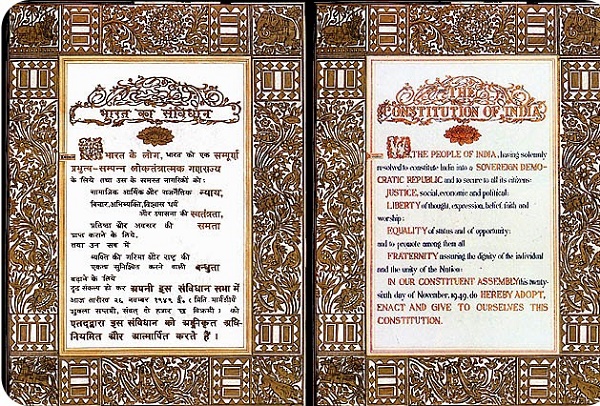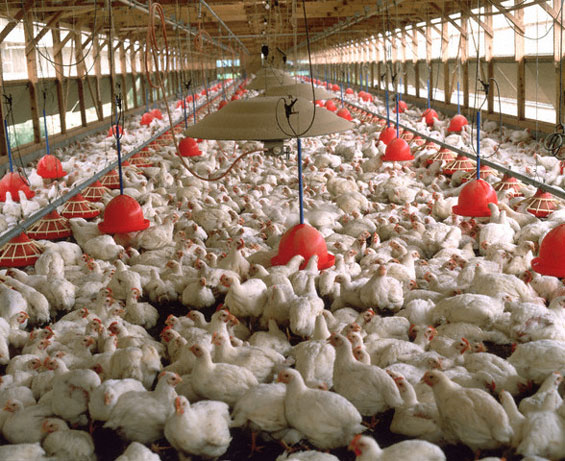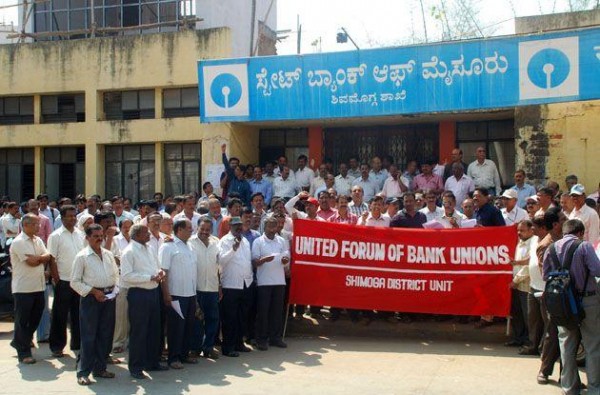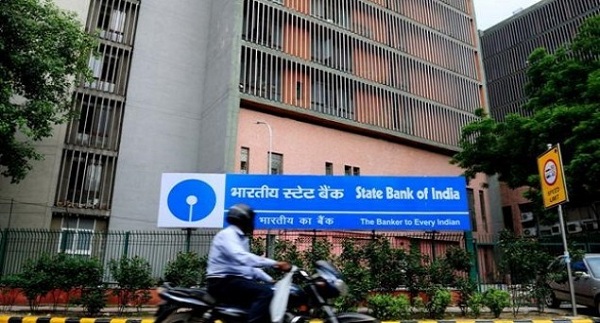
by admin | May 25, 2021 | News
 By Pervez Bari
By Pervez Bari
New Delhi October 30: A group of renowned leaders and scholars from different backgrounds, in a joint statement issued here have demanded the Central government to protect the freedom of association guaranteed by Indian Constitution to all sections of society and to refrain from targeting any organization or group as part of political agenda.
They have strongly demanded to stop demonizing Social Activists, NGO’s, impartial Media, Progressive and Minority Organisations and Indian Muslims who seek a peaceful and secured life in harmony with their fellow citizens in this country.
“While the hate mongers and extremist outfits connected with Hindutva politics roam free in the country by dividing people and instigating violence on religious minorities and progressive sections, the Central government and the state governments under its control remain passive without fulfilling their constitutional responsibilities. On the other hand, as we have seen in the past, it seems that another round of vilification campaign is being intensified by some government agencies with the help of a section of media that are biased against minorities and progressive groups. The atmosphere of hatred that is being created against them is with a specific and calculated purpose”, the statement stated.
On previous occasions, much before the banning certain organisations, their demonetization by quoting government agency reports and media trials were on the air. Once again such an atmosphere is being created against certain Muslim groups by putting on them the tag of helping extremist and terrorist elements.
The statement noted that vilification campaign against organization like Green Peace, Sabrang, Centre for Equity Studies, INSAF, PEACE and Minority organizations like Popular Front of India is an attempt by the present BJP government to muzzle the voices of dissent in the country. They stated that if any of these organisations’ members are found involved in criminal activities they should be prosecuted according to the law of the land. But they demanded the Central government to protect the freedom of association guaranteed by our Constitution to all sections of society and to refrain from targeting any organization or group.
The signatories in the joint statement include:
- Prashant Bhushan (Senior Lawyer, Supreme Court);
- K. Sachidanand (Writer & Former President, Kendra Sahitya Academy);
- Maulana Mahmood Madani (President, Jamiatul Ulama-e-Hind);
- V.T. Rajashekar (Editor – Dalit Voice;
- Prof. Nivedita Menon, Jawaharlal Nehru University);
- Prof. Apoorvanand (Delhi University);
- Dr. Zafarul Islam Khan (Chairperson, Delhi State Minorities Commission);
- Dr. Muhammed Manzoor Alam (General Secretary, All India Milli Council);
- Ashok Bharati (President, Rashtriya Dalit Mahasabha);
- Amit Sengupta (Senior journalist and Academic);
- Prof. G. Hargopal (NLSIU);
- Ravi Nair (Director, South Asian Human Rights Documentation Centre);
- Vidya Bhushan Rawat (Human Rights Activist);
- Dr. S. Q. R. Ilyas (National President, Welfare Party of India);
- Prof. A Marx, (Chairperson, NCHRO) &
- Gopal Menon (Documentary film maker, National Secretary, Alliance for Justice and Peace & President, Save India Forum).

by admin | May 25, 2021 | Business
 New Delhi:(IANS) In a bid to protect poultry from infectious diseases, the central government on Friday issued the revised bio-security guidelines for the poultry farms spread across the country.
New Delhi:(IANS) In a bid to protect poultry from infectious diseases, the central government on Friday issued the revised bio-security guidelines for the poultry farms spread across the country.
The new guidelines, released by the department of animal husbandry, dairying and fisheries, would not only be applied to Central Poultry Development Organisations, but also to state and private poultry farms.
“This lucid general guidelines on bio-security will help prevent ingress of diseases in the poultry farms. If all poultry farms across the country, both public and private follow the basic tenets listed in true spirit it will help in a disease-free, safe and wholesome poultry production,” the agriculture ministry said in a statement.
Bio-security on poultry farms is an essential tool for ensuring welfare of poultry and humans by preventing transmission of poultry-related zoonotic (which can be passed between animals and humans) and food-borne pathogens.
The guidelines assume significance in the wake of some poultry diseases like avian influenza which may be transmitted to humans, and potentially poses serious public health risks.
“After lessons from Avian Influenza and other poultry disease outbreaks across the country both in public and private farms, we must implement, as far as possible, a bio-security plan to prevent any future disasters,” it said.
These guidelines were proposed to act as roadmap for keeping a close vigil and maintenance of bio-security at poultry farms, it added.

by admin | May 25, 2021 | Corporate, Corporate finance
 Chennai/New Delhi/Kolkata, :(IANS) Banking and insurance services were hit on Wednesday as lakhs of bank and insurance employees across the country struck work in protest against the anti-trade union and worker policies of the BJP-led central government.
Chennai/New Delhi/Kolkata, :(IANS) Banking and insurance services were hit on Wednesday as lakhs of bank and insurance employees across the country struck work in protest against the anti-trade union and worker policies of the BJP-led central government.
“Clearing of cheques totalling around Rs.370,000 crore were affected across the country due to the strike. The total number of instruments were around six crore,” C.H. Venkatachalam, general secretary, All India Bank Employees’ Association (AIBEA), told IANS.
According to him, around 500,000 bankers – workers and officers – from across the country participated in the strike. Around 75,000 branches did not function.
“The strike in West Bengal was a total success with 100 percent of employees joining it. The response from both public sector and private sector banks was overwhelming and all banking operations were hit today,” Pradip Biswas, general secretary, Bank Employees Federation of India (BEFI), told IANS.
“Some of our workers received threats from the local political organisations dictating them to join work as normal routine and refrain from the strike. Our members, however, have braved them,” Biswas added.
Similarly, in the government owned life and non-life insurance companies the strike was a success.
“The strike was a total success in Life Insurance Corporation of India (LIC) and the four government owned non-life insurers. Around 100,000 insurance sector employees were on strike nationwide,” V.Ramesh, general secretary, All India Insurance Employees Association (AIIEA), told IANS over phone from Hyderabad.
According to him, insurance offices in West Bengal and Kerala were closed.
Unions in the non-life insurance sector are demanding early conclusion of wage negotiations, finalisation of the promotion policy and scrapping of outsourcing, among other demands.
Transport unions in the country are also striking work over the proposed Road Transport and Safety Bill.
All 52 regional rural banks apart from district banks joined the strike. Besides, employees of other important banks like IDBI, Nabard too struck work, AIEBA’s Venkatachalam said.
“Except the State Bank of India and Indian Overseas Bank, all other banks joined the strike. Kotak Bank is on strike,” Venkatachalam added.
The strike was called in support of the 12-point charter of demands of the 10 central trade unions. Fourteen unions in the banking sector too gave the strike call, protesting against the NDA government’s proposed bills amending labour laws, the Contract Act, the Electricity Act and Factory Act.
The unions in the banking and insurance sectors participated in the strike in support of strike call of central trade unions.
Complaining of increasing attacks on the rights and privileges of workers and concessions extended to the employers, Venkatachalam said there are open attempts to amend labour laws in favour of the employers and to the detriment of the workers.
The neo-liberal economic policies are only aggravating the problems of the workers and common masses, he said.
Venkatachalam said in the banking sector, there are continuous attempts to push through the reforms agenda aimed at privatisation of banks, consolidation and merger of banks and others.
“More and more private capital and foreign direct investments are being encouraged. Private sector companies are being given licences to begin banking business,” he said.
According to him, Regional Rural Banks are sought to be privatised and a bill has been passed in parliament despite protests from employee unions.
The real problem of increasing bad loans is not being effectively handled by the government but on the other hand, crore of rupees are being written off from profits of banks, Venkatachalam said.
“Deliberate and wilful default of bank loans should be termed a criminal offence and money recovered but no action is being taken on them,” he added.
“As on March 31, 2015, there are 7,035 cases of wilful defaulters involving bad loans of Rs.58,792 crore.
“The bad loans in the banks as on March 31, 2015, has risen to Rs.2,97,000 crore in addition to another Rs.4,03,004 crore of bad loans of 530 corporate companies shown as rescheduled and restructured loans under CDR (corporate debt restructuring) scheme,” Venkatachalam said.
According to him, bad loans struck up in top 30 borrowal accounts of public sector banks as on March 31, 2015, is Rs.1,21,162 crore.
“More and more private capital and foreign direct investments are being encouraged. Private sector companies are being given licences to begin banking business,” he said.

by admin | May 25, 2021 | Banking, News
 Chennai:(IANS) Employees of public sector banks and government-owned non-life insurance companies would go on strike on Wednesday to protest against the anti-trade union and worker policies of the central government, union leaders said on Tuesday.
Chennai:(IANS) Employees of public sector banks and government-owned non-life insurance companies would go on strike on Wednesday to protest against the anti-trade union and worker policies of the central government, union leaders said on Tuesday.
“The strike is against the anti-labour and anti-trade union policies of the central government,” K. Govindan, joint secretary, General Insurance Employees’ All India Association (GIEAIA), told IANS.
According to him, the unions in the non-life insurance sector are demanding early conclusion of wage negotiations, finalisation of the promotion policy and scrapping of outsourcing etc.
“There are increasing attacks on the rights and privileges of workers and concessions are being extended to the employers in our country,” C.H. Venkatachalam, general secretary, All India Bank Employees’ Association (AIEBA), said.
“There are open attempts to amend labour laws in favour of the employers and to the detriment of the workers. The neo-liberal economic policies are only aggravating the problems of the workers and common masses,” he added.
He said 14 unions in the banking sector have given a call for the September 2 strike.
Venkatachalam said in the banking sector, there are continuous attempts to push through the reforms agenda aimed at privatisation of banks, consolidation and merger of banks and others.
“More and more private capital and foreign direct investments are being encouraged. Private sector companies are being given licences to begin banking business,” he said.
According to him, Regional Rural Banks are sought to be privatised and a bill has been passed in parliament despite protests from employee unions.

by admin | May 25, 2021 | Corporate, Corporate Governance

Kolkata : (IANS) The central government should capitalise on the growing working class in rural India, as reflected in the Socio Economic and Caste Census 2011 for Rural India, with proper skill development and training, according to a population studies expert.
The survey, conducted for the first time since 1931, gave a glimpse into the lifestyles in rural India in terms of how many households own phone, refrigerator, automobile or land, what percentage of such population pays direct taxes, the kind of jobs they pursue and their literacy rates.
The findings showed that while 51.14 percent (or 9.16 crore) of 17.91 crore rural households earn income through manual casual labour, 14. 01 percent were employed in government service, private service, PSU employment etc.
“The Centre should stress on the increasing proportion of working households. It should have schemes that target their growth and impart skill to them since they make up a considerable part of India’s workforce,” Partha De, associate scientist at Indian Statistical Institute’s population studies unit, told IANS.
“Enabling them with education and skills to use technology properly (such as mobile phones) will be advantageous,” said De.
Further, De said the figures also pointed to the developing purchasing power in rural India.
“This means that India’s indigenous products will become important to satisfy rural India’s purchasing power. If India boosts its own industries and products, it have more takers, especially in competition with products offered by foreign companies,” De said.
He said a survey of households instead of individuals is more important because a household as a whole has different requirements and economic capabilities than individuals.
Only 8.29 percent of the rural households reported a member who was drawing more than Rs.10,000 per month, while for 17.18 percent others the monthly earning was between Rs.5,000-Rs.10,000.
And 180,657 people still do manual scavenging despite this being illegal.
Based on 14 parameters for families — which include criteria such as owning a vehicle, possessing a Kisan Credit Card, having a serving government member, drawing an income of Rs.10,000 per month, or owning a refrigerator — only 7.05 crore families (39.39 percent) stand to be excluded.





